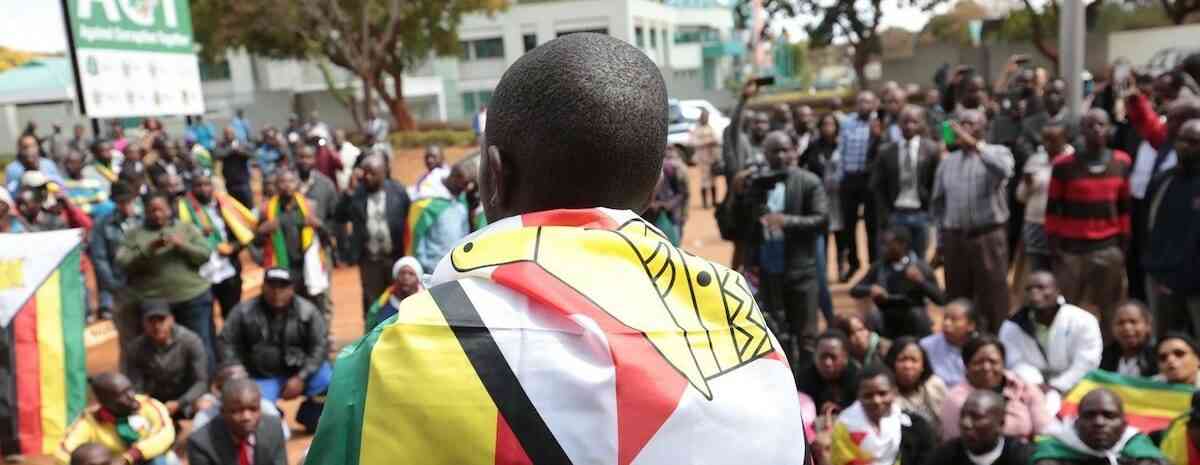
In recent years, Zimbabwe has witnessed a significant shift in the social and political landscape, with a growing number of young people stepping up to demand change. From protests to online campaigns, youth activism has become a powerful force in the fight for social justice, political reform, and economic equality. These young voices are challenging the status quo, demanding accountability, and creating a movement that is reshaping the future of the country.
Empowering Young Voices for Change
Zimbabwe’s youth have long been at the heart of the country's struggles, facing issues such as unemployment, economic instability, and political corruption. However, in recent years, the youth have begun to organize in more structured and strategic ways, amplifying their voices both on the streets and online. Social media has played a pivotal role, allowing young activists to reach a wider audience, share information, and mobilize support for their causes.
In addition to digital platforms, youth movements in Zimbabwe are finding innovative ways to connect with the broader public. One example is using tools like generate QR codes to link people to petitions, event details, or important information about ongoing campaigns. These tools not only simplify engagement but also ensure that critical messages are easily accessible to the masses, particularly in urban areas where digital access is widespread.
The Role of Social Media in Zimbabwe’s Youth Activism
Social media has been a game-changer for Zimbabwean youth. Platforms like Twitter, Facebook, and WhatsApp are central to organizing protests, sharing news, and amplifying voices that have long been marginalized. Activists use these platforms to draw attention to government corruption, human rights violations, and social issues that have been ignored for too long.
One of the most significant movements in recent years has been the #ThisFlag campaign, which emerged in 2016. Led by the young pastor Evan Mawarire, the movement used social media to highlight the everyday struggles of Zimbabweans and demand an end to corruption and mismanagement. This campaign sparked nationwide protests and led to greater public engagement with the political process.
More recently, younger activists are utilizing Instagram and TikTok to document their stories and encourage solidarity. Through short videos and visually engaging content, they are reaching a generation that is often disconnected from traditional news outlets, making it easier for them to resonate with their message.
- Mavhunga puts DeMbare into Chibuku quarterfinals
- Bulls to charge into Zimbabwe gold stocks
- Ndiraya concerned as goals dry up
- Letters: How solar power is transforming African farms
Keep Reading
Youth-Led Movements and Political Change
The political climate in Zimbabwe has long been dominated by older generations, but the younger generation is now demanding a seat at the table. These youth-led movements are not just about protesting; they are about influencing policy, holding leaders accountable, and working toward a more transparent and democratic government.
One powerful example is the opposition party, the Movement for Democratic Change (MDC), which has seen a surge in younger leadership in recent years. Young leaders like Fadzayi Mahere, who became the party’s spokesperson, are bringing new energy and ideas to the political landscape, pushing for reforms in governance and more inclusive policies.
These efforts are also reflected in the growing number of young people running for office, hoping to represent the voices of those who have often been sidelined. This shift is a clear sign that Zimbabwe’s youth are not just participating in politics—they are shaping it.
Addressing Economic Challenges
Another area where youth activism has made an impact is in addressing the economic hardships that young people in Zimbabwe face. Unemployment rates are incredibly high, with many young Zimbabweans struggling to find stable work. This economic instability has led to a rise in informal work, which often lacks job security and fair wages.
In response, youth activists are calling for economic reforms that focus on job creation, better educational opportunities, and greater support for small businesses. They are also pushing for policies that tackle corruption in the private sector and improve access to capital for young entrepreneurs.
Additionally, young people are exploring innovative ways to create their own opportunities. From starting small businesses to using technology to access international markets, Zimbabwe’s youth are proving that despite the obstacles, they are determined to build a better future for themselves.
The Future of Youth Activism in Zimbabwe
As Zimbabwe’s young activists continue to grow in numbers and influence, it’s clear that the future of the country is in their hands. Their commitment to justice, democracy, and economic reform is reshaping the political and social landscape, making it more inclusive and reflective of the needs of the people.
While challenges remain, the rise of youth activism in Zimbabwe is a hopeful sign for the country’s future. The resilience and determination of these young leaders prove that even in the face of adversity, change is possible. With their voices ringing louder and their presence felt in every corner of society, the youth of Zimbabwe are driving the country toward a brighter, more equitable future.
Final Thoughts
The rise of youth activism in Zimbabwe is a testament to the power of young people to enact change. Whether through social media, protests, or political engagement, the voices of Zimbabwean youth are making an undeniable impact. As they continue to push for justice and reform, their influence will undoubtedly shape the country’s future for years to come.










